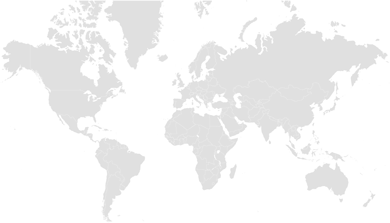Case study
2024 • Karnataka Compost Development Corporation (KCDC); Terra Firma Biotechnologies Two approaches to Municipal Solid Waste Composting in Bangalore, India
Bangalore employs two complementary approaches to municipal solid waste (MSW) composting: a long-standing state-owned model by the Karnataka Compost Development Corporation (KCDC) and a scalable private-sector solution by Terra Firma Biotechnologies. KCDC focuses on low-tech windrow composting, while Terra Firma operates a more diversified integrated solid waste management system, processing recyclables, organics, and landfill-bound residuals. Both models address Bangalore’s MSW challenges, showcasing complementary roles for public and private sector involvement in sustainable waste management.
Recovered Materials & Products
Compost
Waste Streams
Organic solid waste
Confirmed countries
Mexico


Background and Context
Location: Bangalore, Karnataka, India.
Resource Stream: Mixed MSW and biodegradable waste.
Challenges: India generates 48.5 million tonnes of MSW annually, with 42.5% being biodegradable. Challenges include low source separation, high levels of contamination, and limited capacity to process organics. As of 2013, 28% of MSW collected was treated, with the remainder landfilled or dumped untreated.
Technologies/Methods Used
KCDC: Employs aerobic windrow composting for mixed MSW. Weekly turning for 7–8 weeks, producing compost products such as “City Compost,” “Vermi-compost,” and “AgriGold.”
Terra Firma: Integrated Solid Waste Management Facility that uses manual and mechanical sorting to separate recyclables and organics. Processes organics through windrow composting; 15,000 tonnes of compost produced annually. Includes a biogas facility and landfill for residuals.
Implementation Steps
KCDC: Processes 200 tonnes per day (TPD) of MSW received from Bruhat Bangalore Mahanagara Palike (BBMP).
Subsidized compost pricing supported by the Karnataka government.
Terra Firma: Processes over 500 TPD of mixed MSW using a comprehensive system involving composting, recycling, and landfilling. Developed franchises and partnerships, establishing 38 MSW processing facilities across India between 1998 and 2003.
Outcomes and Impacts
- Environmental Benefits: Significant reduction in landfill dependency and methane emissions.
Compost enhances soil health and reduces the need for synthetic fertilizers. - Economic Contributions: KCDC earns revenue solely from compost sales; Terra Firma diversifies income through tipping fees, compost sales, and recyclables recovery.
- Social Benefits: Increased awareness about compost use among farmers.
Challenges
- Negative perceptions from local communities limit expansion potential for both KCDC and Terra Firma.
- KCDC’s state ownership causes discontinuity in management vision.
- High contamination rates in MSW impact processing efficiency and compost quality.
Lessons Learned
The case demonstrates the viability of both public and private models in advancing MSW composting. Strategic subsidies and supportive policies, such as tipping fees and compost pricing, are critical. Diversification of revenue streams, as seen in Terra Firma’s model, enhances financial sustainability. However, greater efforts are needed to improve source separation and address community concerns.
Learn more
This case study is extracted from the publication linked below: "Sustainable Financing and Policy Models for Municipal Composting. World Bank (2016)"
https://openknowledge.worldbank.org/entities/publication/e1aac77a-5258-5927-9268-847c754cb9f5
Technologies
Composting
Vermicomposting
Themes
Financing and investment
Policy and regulation
Public-private partnerships